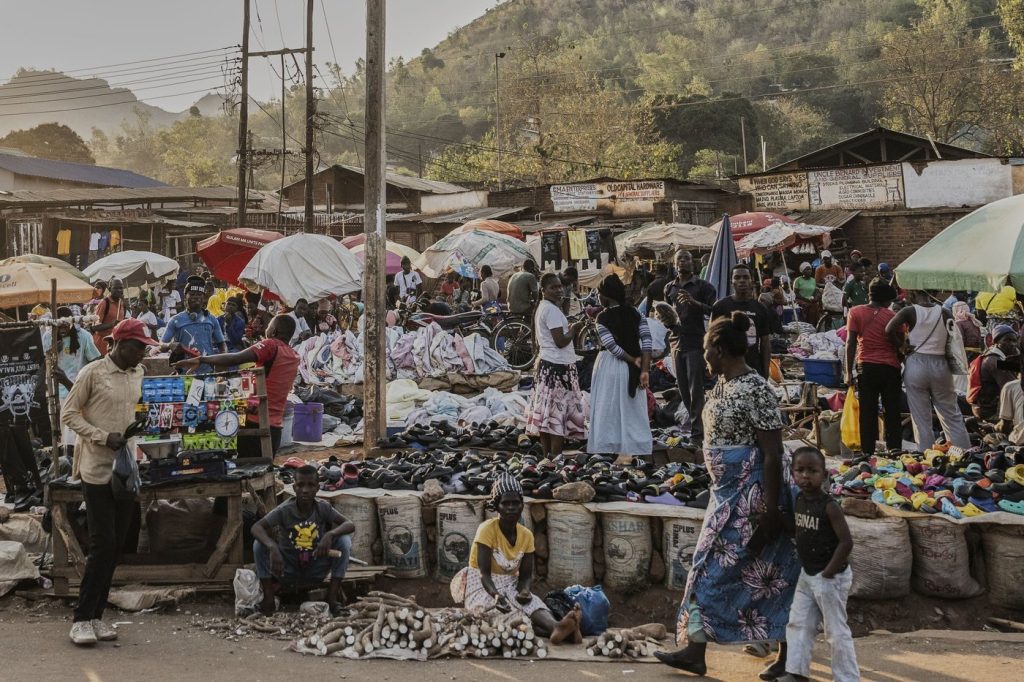BLANTYRE, Malawi (AP) – Malawi is conducting a pivotal presidential election this week against a backdrop of economic turmoil marked by food and fuel shortages. This election comes after a turbulent political history, including elections marred by irregularities six years ago, which led to the annulment of the 2019 vote and a subsequent re-election in the following year.
The incumbent, President Lazarus Chakwera, a 70-year-old former theology instructor and preacher from the Malawi Congress Party, seeks re-election. He originally lost the 2019 election to Peter Mutharika, the then-incumbent president, before the high court ordered a redo due to widespread electoral fraud. Mutharika, now 85 and representing the Democratic Progressive Party, is attempting to reclaim leadership.
This election features 17 candidates, with Chakwera and Mutharika viewed as the foremost contenders. Additionally, voters will elect members of Parliament and over 500 local council representatives. The political climate has shifted dramatically since Chakwera’s previous victory, where he gained significant support through public protests. Today, economic hardships have led to decreased public trust in government institutions, leaving the nation of 21 million citizens anxious.
Inflation rates have surged, and basic necessities like fuel and sugar have become critically scarce. Natural disasters, such as Cyclone Freddy in 2023 and a severe El Niño-induced drought anticipated in 2024, have devastated agricultural production and escalated food insecurity. The untimely death of former Vice President Saulos Chilima in a plane crash last year added to the uncertainty, as he was a popular figure among the youth viewed as a potential future leader.
Political analyst Boniface Dulani noted that the Malawian populace is fatigued and seeking substantial improvements rather than mere rhetoric. The expectation of Mutharika’s comeback does not reflect his popularity alone, but rather the widespread disenchantment with Chakwera's administration.
Following the 2019 electoral debacle, Malawi has adopted a new electoral framework, requiring a candidate to secure over 50% of the vote for a victory. Analysts project that it is unlikely for either Chakwera or Mutharika to achieve a majority in the initial voting round, potentially necessitating a runoff election.
The key concerns for voters, in one of the world’s least developed countries, revolve around the rising costs of food and fertilizer. Agriculture is the backbone of Malawi's economy, with over 80% of its citizens residing in rural areas and depending on small-scale farming; tobacco stands as the country’s primary export.
Mutharika's campaign focuses on a return to "trusted leadership," resonating with some citizens. Eliza Justin, a 34-year-old market trader, expressed nostalgia for Mutharika’s previous tenure, claiming that during his presidency, fertilizer prices were affordable, allowing for bountiful corn harvests. She stated, "Now, prices are killing us. We need Mutharika back to save us.”
However, questions about Mutharika’s age linger, as he would turn 90 by the end of a potential new presidency. He also selected the former electoral body head who presided over the controversial 2019 elections as his running mate, further fueling suspicions of collusion in past electoral processes.
Meanwhile, Chakwera remains active in campaigning but faces criticism over an economy perceived as collapsing and unmet expectations. Inflation has escalated from approximately 8% in 2020 to 27% during Chakwera's administration, worsening poverty levels across the nation. The fallout with Chilima prior to his death had also diminished support, especially from younger voters who had viewed him as a promising political figure.
Proponents of Chakwera argue that voting for Mutharika, whose brother previously led Malawi from 2004 to 2012, symbolizes a regression and a return to the past. As Aubrey Kachiwala, a taxi business operator, stated, "We’re looking forward, not backward.”
The electoral process will be managed by the Malawi Electoral Commission, under close scrutiny due to the chaotic events surrounding the 2019 elections.











